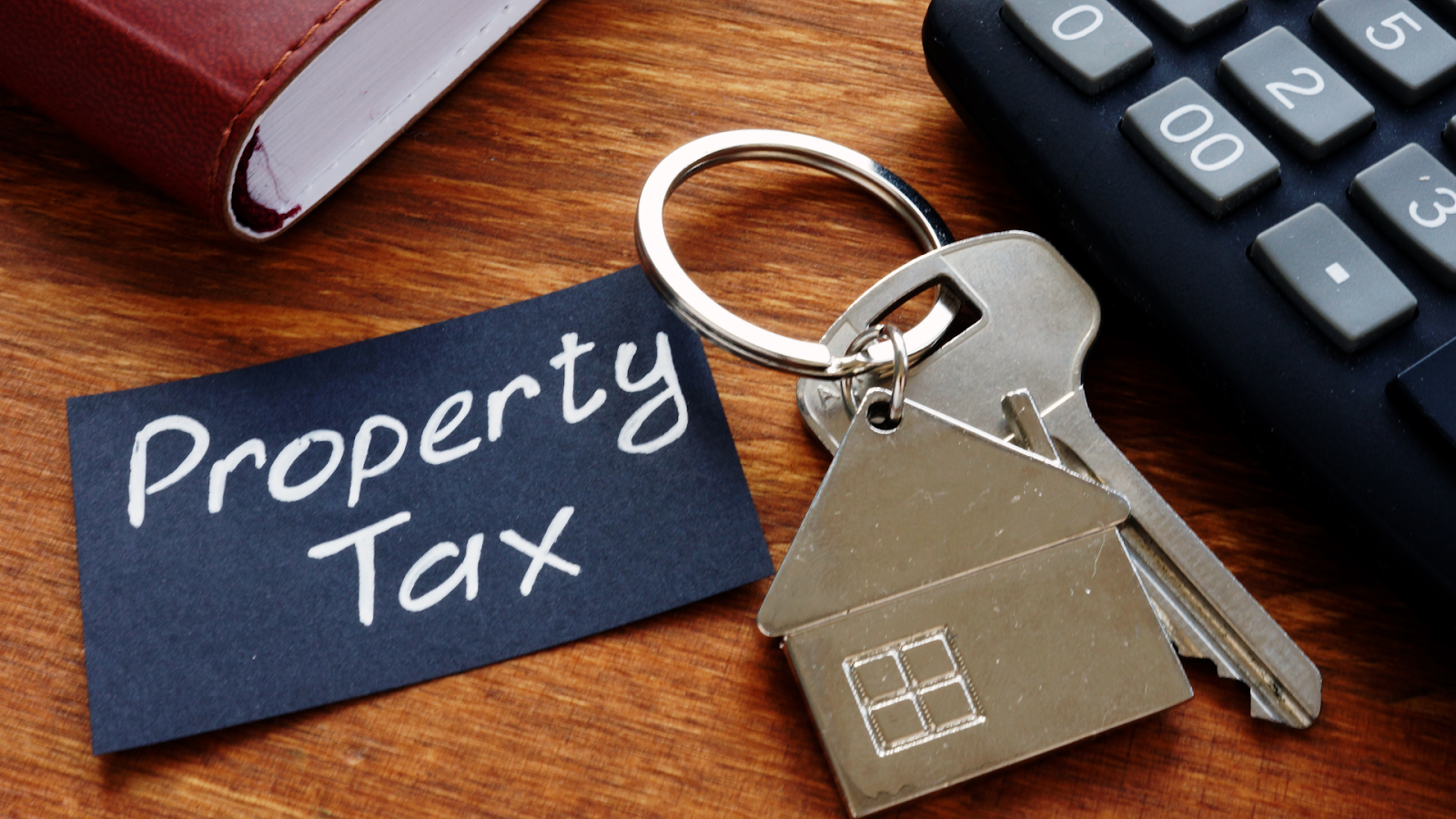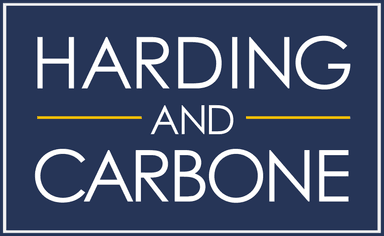Breaking Down The Typical Property Tax Rate In Texas
October 7, 2025

Key Takeaways:
- Rate Variation: Property tax rates in Texas differ by county, school district, and local budgets, leading to wide differences in bills.
- Appraisal Impact: Annual assessments often raise tax obligations, and overvaluations can leave owners paying more than necessary.
- National Comparison: With no state income tax, Texas property taxes rank among the highest in the U.S., heavily funding schools and services.
Property taxes are a fact of life for homeowners and businesses in Texas. With one of the highest average property tax rates in the nation, Texans often find themselves paying thousands of dollars each year to support schools, infrastructure, and local services. While these taxes are necessary to keep communities running, the variation in rates and the impact of annual appraisals can make property taxes confusing and, at times, overwhelming.
At Harding & Carbone, we’ve been handling Texas property taxes for decades. Our experience spans residential, commercial, and industrial properties, giving us unmatched insight into how assessments work and how they can be successfully challenged. With a long track record of helping Texans reduce their property tax burdens, we understand the complexities of the system better than anyone.
How Property Tax Rates Vary Across Texas
Property tax rates in Texas are not set at the state level. Instead, they are determined by local governments, which means the rate you pay depends heavily on where your property is located. Counties, cities, and school districts all play a role in establishing rates, and each has its own budget priorities.
Urban counties such as Harris (Houston) and Travis (Austin) often have higher overall tax bills. Rising property values in these areas contribute to larger assessments, even when the rates themselves do not appear excessive. On the other hand, rural counties typically have lower property values, which can keep tax bills lower even if the percentage rate is comparable to urban areas.
Understanding these differences is essential for homeowners and businesses alike. Many properties across Texas are assessed at values higher than their actual market worth, which can lead to inflated tax bills. That is why carefully reviewing your assessment each year is one of the most effective ways to manage your property tax burden.

The Impact Of Appraised Value On Your Property Tax Bill
Your property’s appraised value is the foundation of your tax bill in Texas. Because appraisal districts reassess properties every year, even small increases in value can significantly affect what you owe. To better understand how this process impacts homeowners and businesses, it helps to look at the key factors involved:
Annual Appraisals Drive Tax Bills
Every year, county appraisal districts in Texas reassess property values to determine tax obligations. If your property’s appraised value rises, your tax bill will likely increase, even if tax rates remain the same.
Market Trends Can Push Values Higher
Shifts in the local housing market often lead to higher appraisals. Rapid growth or increased demand in a neighborhood can raise values across the board, impacting owners who haven’t made any changes to their property.

Overassessments Lead To Overpayment
When a property is valued above its actual market worth, the result is an unfair tax burden. Many homeowners and business owners unknowingly pay more than they should simply because their property was appraised too high.
Protesting An Inaccurate Valuation
Texas law gives property owners the right to challenge appraised values they believe are incorrect. Filing a protest can lower the assessed value to a fairer level, reducing the annual tax bill in the process.
Understanding Property Tax Assessments In Texas
Property tax assessments are the starting point for determining how much Texans owe each year. These values are established by county appraisal districts, and while they aim to reflect fair market value, they often come in higher than expected. Here’s what every property owner should know about the assessment process:
Annual Assessments By County Appraisal Districts
Each January 1, appraisal districts evaluate properties to determine their taxable value for the year. These assessments set the foundation for the property tax bill you’ll receive later.

Notice Of Appraised Value In The Spring
Property owners are notified of their appraised values in April. This notice gives you the opportunity to review the assessment and prepare to take action if the valuation seems inaccurate.
Common Issues With Overvaluation
Assessments frequently overstate property values, especially in fast-growing or highly desirable areas. This can result in higher taxes than the property truly warrants.
The Right To File A Protest
Texas law gives property owners the ability to dispute their appraisal if it doesn’t align with market reality. By filing a protest, you may secure a reduction that brings your tax bill back in line with fair value.
For property owners ready to address their tax concerns, connect directly with Harding & Carbone. Their team is available to guide you through the process with clarity and experience.
How Texas Property Taxes Compare Nationally
Texas consistently ranks among the states with the highest property tax burdens. With no state income tax to help fund schools and local services, property owners shoulder a larger share of the cost. Here’s how Texas compares to the rest of the country:
Higher Than The National Average
The average effective property tax rate in Texas is about 1.8%, compared to a national average of 1.1%. This places the state alongside New Jersey and Illinois as one of the costliest places for property owners.
The Trade-Off For No State Income Tax
Because Texas does not collect a state income tax, property taxes serve as a primary source of funding. This means homeowners keep more of their income but face higher annual bills tied directly to their property value.
Impact Of Local Market Conditions
Urban counties with rapidly appreciating property values tend to see the largest tax bills. Rural areas often have lower overall burdens, but appraisal practices can still result in inflated assessments across both settings.
Why Many Owners Overpay
A significant number of properties are assessed at values above their actual market worth. This disconnect between appraisal and reality leaves many Texans paying more in taxes than necessary.
Stay informed about property tax changes and learn more about how they affect you by visiting Harding & Carbone’s website. Their resources provide straightforward insights into the Texas property tax system.
Final Thoughts
Texas property taxes are among the highest in the nation, and many homeowners and businesses pay more than necessary because of inflated appraisals. Reviewing assessments each year and challenging inaccurate valuations can lead to meaningful savings while keeping tax bills aligned with true market value.
Although property taxes place a financial burden on owners, they also support essential services like schools, infrastructure, and public safety. The key is balance, making sure your contributions are fair while still helping sustain the communities where you live and work.
If you’re interested in learning how professionals handle tax protests and valuation reviews, take a look at the services offered by Harding & Carbone. Their expertise spans residential, commercial, and industrial properties across Texas.
Read Also:
- Property Tax Advice For Montgomery County Homeowners
- Fort Bend County Taxes: Essential Facts And Payment Steps
- Brazoria County Taxes: A Guide To Rates, Exemptions, And Due Dates
Frequently Asked Questions About the Average Property Tax in Texas
What makes Texas property taxes different from other states?
Unlike many states, Texas does not collect a personal income tax. As a result, property taxes are a primary source of revenue for schools, public safety, and infrastructure.
Do property tax rates in Texas ever go down?
While rates can decrease, they rarely drop significantly because local governments rely on tax revenue to cover growing budgets. However, reductions are possible if local entities lower their adopted rates.
How do exemptions affect property tax bills?
Exemptions reduce the taxable value of a property, lowering the overall bill. Common exemptions include the homestead exemption, senior exemptions, and veteran-related benefits.
Can businesses also protest their property taxes?
Yes. Both residential and commercial property owners have the right to challenge appraisals if they believe the assessed value is too high.
When is the deadline to file a property tax protest in Texas?
Protests are usually due by May 15 or 30 days after the appraisal notice is sent, whichever is later. Missing the deadline typically means waiting until the next tax year.
Do rental properties qualify for tax exemptions in Texas?
Generally, exemptions are limited to primary residences and certain special categories, so most rental properties do not qualify. However, landlords can still protest valuations.
How do property taxes affect housing affordability in Texas?
High property taxes increase the cost of homeownership, which can make housing less affordable, especially in rapidly growing urban markets.
Are there penalties for failing to pay property taxes on time?
Yes. Late payments can lead to penalties, interest, and even foreclosure if left unpaid. Staying current is essential to protect property rights.
Can property tax bills be paid in installments?
Some counties allow installment payment plans, particularly for homeowners who qualify for exemptions, but availability varies by jurisdiction.
How do new developments or improvements impact property taxes?
Renovations or additions can increase a property’s appraised value, resulting in higher tax bills. Even minor improvements may affect the overall assessment.
